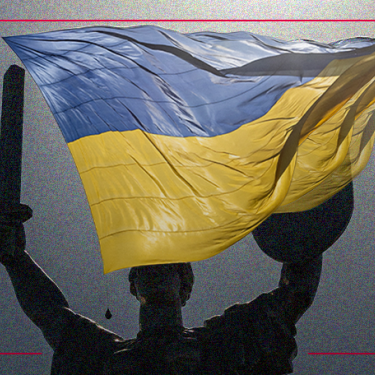Shrinking press freedom in Ukraine: urgent need to implement a roadmap for the right to information

Pressure against independent media in Ukraine has been growing for several months. Reporters Without Borders (RSF) urges the Ukrainian authorities to implement the recommendations of its roadmap, presented a year ago, in order to protect independent journalism and the right to information in the country.
Surveillance, threats to be enlisted in the army, increased control by the authorities... Political pressure and obstacles are mounting on the Ukrainian media. Since the beginning of 2024, at least five journalists have been under surveillance or threatened because of publications on corruption.
A case of political interference also came to light, with the appointment of a military representative as director of the national news agency Ukrinform on 24 May and the revelation on 29 May of internal censorship, with a list of guests to be banned having been circulated to staff. And from now on, quotes and interviews with members of the armed forces must be sent three days before publication to the centre for strategic military communications, according to a military decree unveiled by the media on 12 June. As well as acting as a deterrent, such a verification period limits coverage of the war in real time.
“The pressure, threats and interference must stop. Despite their admirable resilience after Russia launched its full scale invasion on 24 February 2022, the Ukrainian media landscape remains fragile. The press freedom roadmap that RSF submitted to the Ukrainian authorities in early June identifies crucial priorities for protecting independent journalism and the right to information in Ukraine. We urge them to implement these recommendations without delay.
Ukrainian journalists have been saying for several months that press freedom is shrinking in their country. Detector Media news site editor Natalia Ligachova sounded the alarm during the conference on the role of media in democracy held in Kyiv on 6 June by RSF, its Ukrainian partner, the Institute of Mass Information (IMI), and the European Union delegation in Ukraine. “We are not enemies of the government.” Ligachova said. “We stand alongside the authorities, but we are responsible partners. And a responsible partner always tells the truth.”
A growing number of cases
Mykhailo Tkach, an investigative reporter for the independent media outlet Ukrainska Pravda, was the target of an online death threat after a story by him about a businessman was published in May. Cases of harassment and intimidation in connection with his work are already the subject of more than ten judicial investigations but these investigations, as well as the investigations into the cases of several other journalists interviewed by RSF, remain at a standstill.
Yuriy Nikolov, an investigative reporter who was threatened by masked individuals in January with forcible enlistment into the Ukrainian army because of one of his stories for the anti-corruption media outlet Nashy Hroshy, reported on 30 May that the case, originally treated by the police as “obstruction of journalistic work,” has been downgraded to “hooliganism.”
Strengthening the Ukrainian media landscape
During a visit to Kyiv from 4 to 7 June, an RSF delegation gave the Ukrainian authorities a copy of its roadmap with seven specific and detailed recommendations that RSF unveiled for the first time in May 2023. To safeguard media pluralism and independence in Ukraine, RSF calls on the authorities to urgently:
-
Combat impunity for crimes of violence against journalists;
-
Ensure that those responsible for the propaganda that has incited war crimes are brought to justice;
-
Encourage media pluralism and independence;
-
End arbitrary restrictions and discrimination with regard to coverage of the war;
-
Safeguard funding for journalism;
-
Encourage quality journalism by means of the Journalism Trust Initiative;
-
Join the International Partnership for Information and Democracy.
